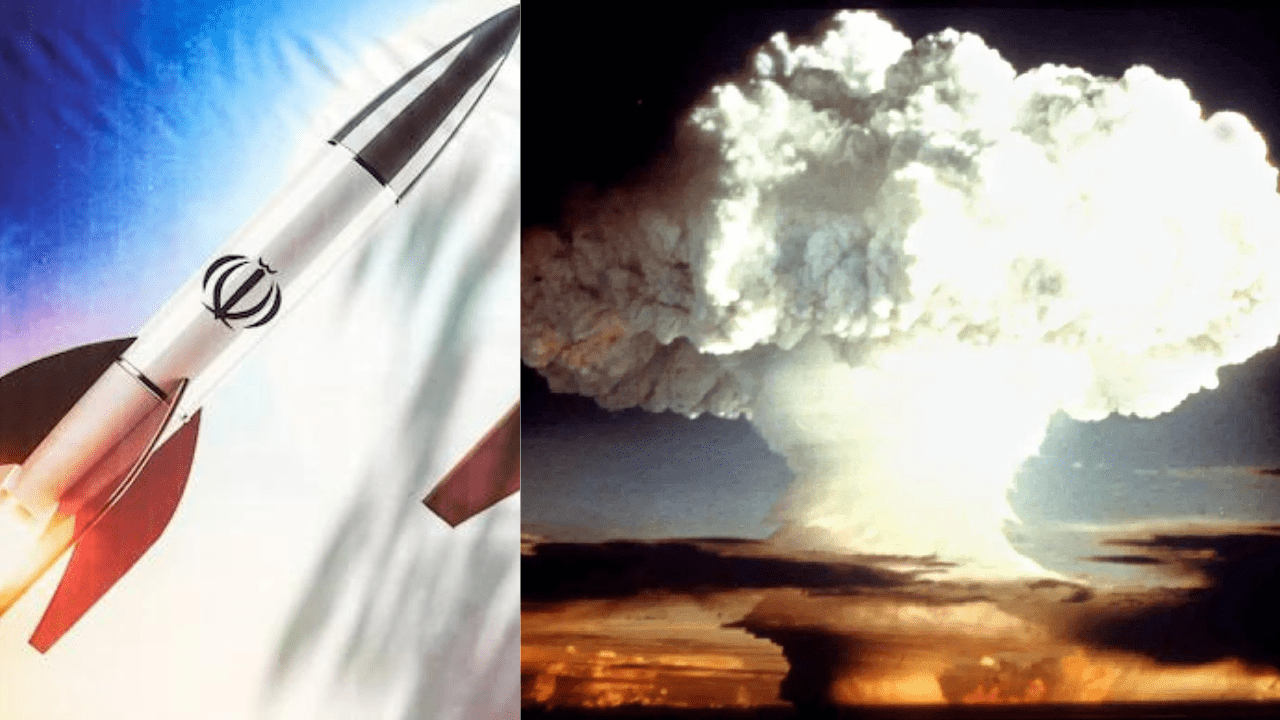Iran Nuclear Weapon Ambitions – Three Muslim Nations Edge Closer to Nuclear Arsenal as America’s Anxiety Escalates!

In a world already fraught with conflict, the specter of a potential third world war looms ever larger, fueled by escalating geopolitical tensions and the alarming advances in nuclear capabilities. At the center of this brewing storm is Iran, whose nuclear ambitions are set to reshape the balance of power in the Middle East. Disturbingly, Iran is not alone in this endeavor, as it is reportedly ready to extend its nuclear technology to other Muslim-majority nations, potentially triggering a new and dangerous arms race.
The Current Geopolitical Climate
Conflict rages in various corners of the globe. The war between Ukraine and Russia has persisted for nearly three years, causing untold destruction and straining international relations. In Sudan, a severe conflict has erupted, further destabilizing the region. Meanwhile, the Gaza Strip has been a hotbed of tension for the past seven months, exacerbating the already volatile situation in the Middle East. Amid these conflicts, reports suggest that Iran is prepared to share its nuclear capabilities with two other Muslim countries, raising the stakes to unprecedented levels.
Iran’s Nuclear Progress
According to the International Atomic Energy Agency (IAEA), Iran possesses enough enriched uranium to potentially construct three nuclear weapons. This development is particularly alarming given Iran’s history of pursuing its nuclear program clandestinely, often in defiance of international regulations and oversight. The involvement of Russia in assisting Iran’s nuclear advancements has only added to the concern among Western nations.
The Implications for the Middle East
Currently, Israel stands as the sole nuclear-armed state in the Middle East, a status that has long been a point of contention and a source of strategic balance. However, Iran’s progression towards nuclear armament threatens to alter this balance dramatically. Reports indicate that Iran is not only close to developing its own nuclear weapons but is also planning to share this technology with Turkey and Saudi Arabia. Such a move could potentially see three Middle Eastern nations armed with nuclear weapons, significantly increasing the risk of conflict in an already unstable region.
Iran Nuclear Weapon Ambitions along with Three Muslim Countries Racing Toward Nuclear Arms – U.S. on High Alert
The Strategic Motives Behind Iran’s Actions
The strategy of Iranian President Ebrahim Raisi in distributing nuclear technology to Turkey and Saudi Arabia appears to be multifaceted. On one hand, this move could be seen as an attempt to counterbalance the nuclear capabilities of Israel and deter any potential threats from neighboring countries. On the other hand, it might be a bid to strengthen political and military alliances with Turkey and Saudi Arabia, consolidating Iran’s influence in the region.
The Reaction of the International Community
The potential nuclearization of Turkey and Saudi Arabia has sent shockwaves through the international community, particularly in Western countries such as the United States. The prospect of multiple nuclear-armed states in the Middle East raises significant security concerns. Israel, in particular, would find its position precarious, surrounded by neighbors with comparable nuclear capabilities. The United States and other Western nations have expressed deep apprehension over these developments, recognizing the severe implications for global security and stability.
The Path Forward: Diplomatic Efforts and Preventive Measures
Preventing the further spread of nuclear weapons in the Middle East will require concerted international efforts. Diplomatic engagements, stringent sanctions, and robust monitoring by the IAEA are essential components of any strategy to curb Iran’s nuclear ambitions. Furthermore, fostering dialogue and cooperation among Middle Eastern nations could help address underlying security concerns and reduce the perceived need for nuclear deterrence.
The Broader Context: Global Nuclear Non-Proliferation
This situation underscores the broader challenges facing global nuclear non-proliferation efforts. The international community must reinforce its commitment to treaties such as the Non-Proliferation Treaty (NPT) and work towards comprehensive disarmament. Ensuring that emerging nuclear powers adhere to strict regulatory frameworks is crucial to maintaining global peace and security.
The potential expansion of nuclear weapons to Iran, Turkey, and Saudi Arabia marks a dangerous escalation in global tensions. Iran’s clandestine advancements and willingness to share nuclear technology with its neighbors threaten to destabilize the Middle East and provoke a wider international crisis. The world stands at a critical juncture, where decisive and unified action is needed to prevent the proliferation of nuclear weapons and safeguard future generations from the horrors of nuclear conflict. The stakes have never been higher, and the urgency for peace and diplomacy has never been more paramount.
Also Read:

The Psychology of Love: Why Valentines Day Matters More Epic Than You Think
Discover the psychology of love and why Valentines Day is more important than you think. Learn how love impacts the brain, strengthens relationships, and boosts

Premier League Highlights: Arsenal Humiliate Man City 5-1, Spurs and Palace Secure Crucial Wins
Arsenal demolished Manchester City 5-1 in a statement premier league highlights win, reigniting their title hopes. Meanwhile, Crystal Palace stunned Man United 2-0, and Tottenham

How Budget 2025 Impacts the Indian Middle-Class: Major Tax Benefits and Glaring Omissions
Budget 2025 offers major tax relief to the middle class, including zero tax on incomes up to ₹12 lakh. However, it misses out on incentives

Degrees vs Employability: Why “Highly Qualified Degree Holders” Struggle to Find Jobs While “Less Qualified Individuals” Get Hired Faster!
Many highly qualified individuals struggle to secure jobs, while less qualified candidates get hired quickly. This Degrees vs Employability paradox is caused by employer preferences,

The Power of Mindset: Why Looking Poor Doesn’t Make You Poor, but Thinking Poor Does!
Discover why looking poor doesn’t define your wealth but thinking poor does. Learn the power of mindset and how a growth-oriented mindset can lead to

Overthinking: How It’s Damaging Today’s Youth – Causes and Cure in 2025
Understanding how overthinking is silently damaging today’s youth, from its causes rooted in societal pressure and social media to its long-term effects on mental health.
